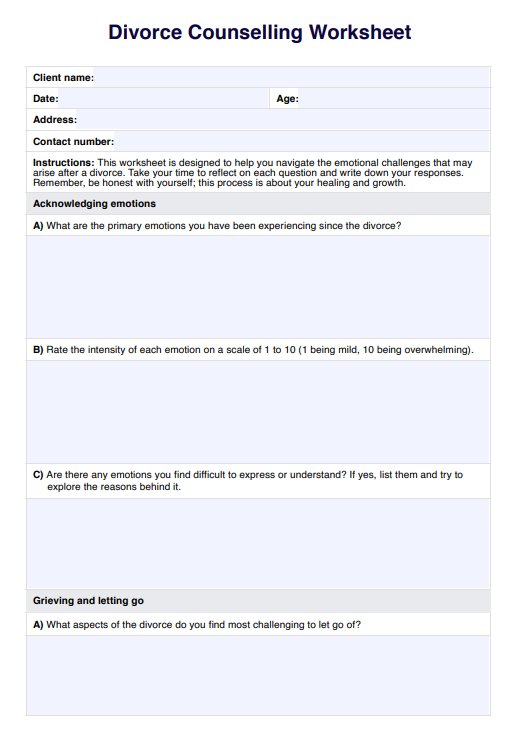Divorce counseling aims to help individuals navigate the emotional challenges of ending a relationship, facilitate healthy communication between parties, and support clients in adjusting to life post-divorce.

Divorce Counseling Worksheet
Navigate emotional challenges post-divorce with expert-guided counseling worksheets for healing & growth. Access the free template now.
Divorce Counseling Worksheet Template
Commonly asked questions
During a divorce counseling session, you can expect to discuss your feelings, learn coping strategies for managing stress and emotions, and receive guidance on how to communicate effectively with your ex-partner, especially if children are involved. You may also do family therapy activities, such as sentence completion.
Divorce counseling is not only for couples; it also serves individuals who are going through a divorce to help them cope with the emotional distress and life changes that accompany the end of a marriage.
EHR and practice management software
Get started for free
*No credit card required
Free
$0/usd
Unlimited clients
Telehealth
1GB of storage
Client portal text
Automated billing and online payments











